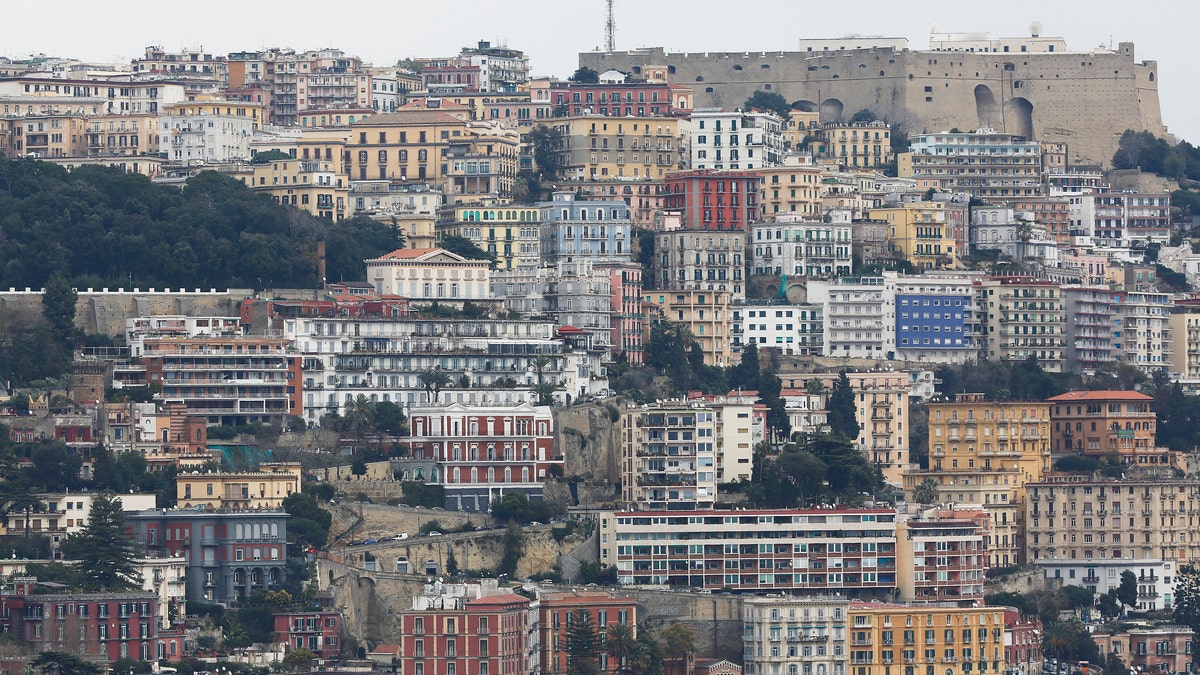
A general view of Naples, Italy Feb. 23, 2016. (REUTERS/Tony Gentile)
Had a man not sat down and written a letter, those who live in Naples, Italy's Monte di Dio neighborhood may still have no idea what lies beneath their feet.
But a 90-year-old WWII survivor sent his subterranean recollection of escaping the bombs pelting his city during WWII to a geologist, who was intrigued by what the man described: "incredible stairways and huge chambers that no one remembered," geologist Gianluca Minin tells the Times of London.
After some 700 metric tons of rubble were removed, a "hidden world" roughly the size of a baseball field came into view, according to Atlas Obscura.
In it, a 115-step staircase and a multi-level network of tunnels that had at their nexus a 17th-century cistern that would have once held water but, centuries later, sheltered people.
Minim tells the Times that there were thousands such cisterns carved out of Naples' soft volcanic rock, "but many were filled with earth when plumbing arrived or with bomb rubble after the war.” This one was "perfectly preserved," per the Times, which notes it's not the first underground find made by Minin: In 2004 he uncovered the "Bourbon Tunnel," described as the city's "most fascinating underground route." Created to provide an escape path from the palace in the 1850s, it too was found to have doubled as WWII shelter: WWII-era vehicles, old bathrooms (along with cologne used to deal with their odor), toys, and swastikas were found there—the latter evidence, per the Times, that German soldiers also spent some time in the shelter. (More cool underground finds: this huge city in Turkey.)
This article originally appeared on Newser: WWII Survivor's Letter Leads Geologist to a Secret
More From Newser